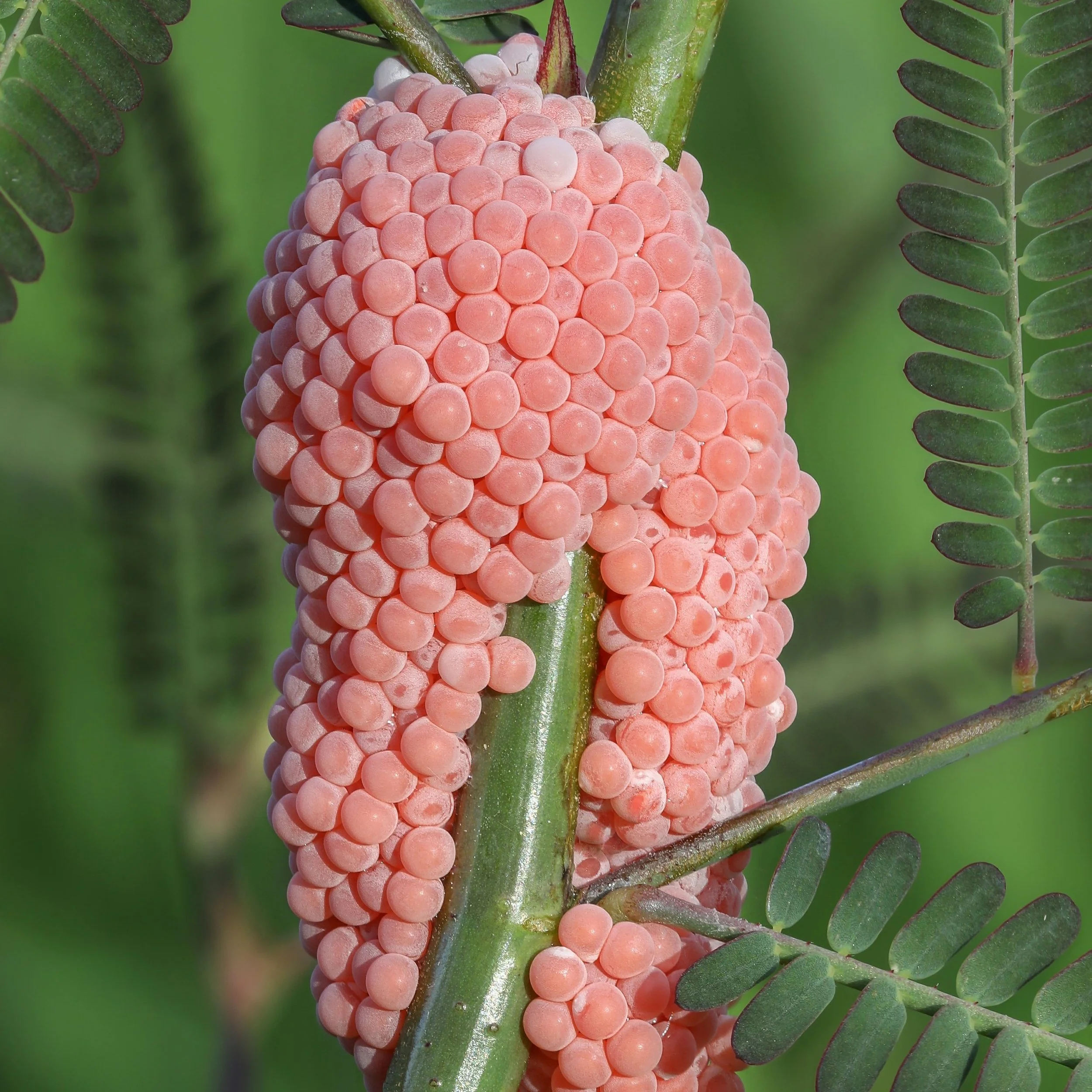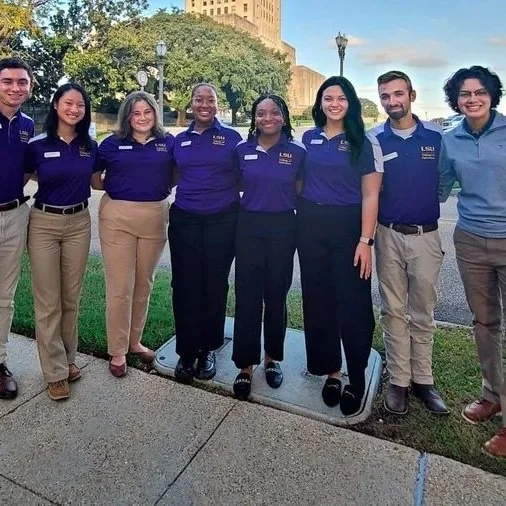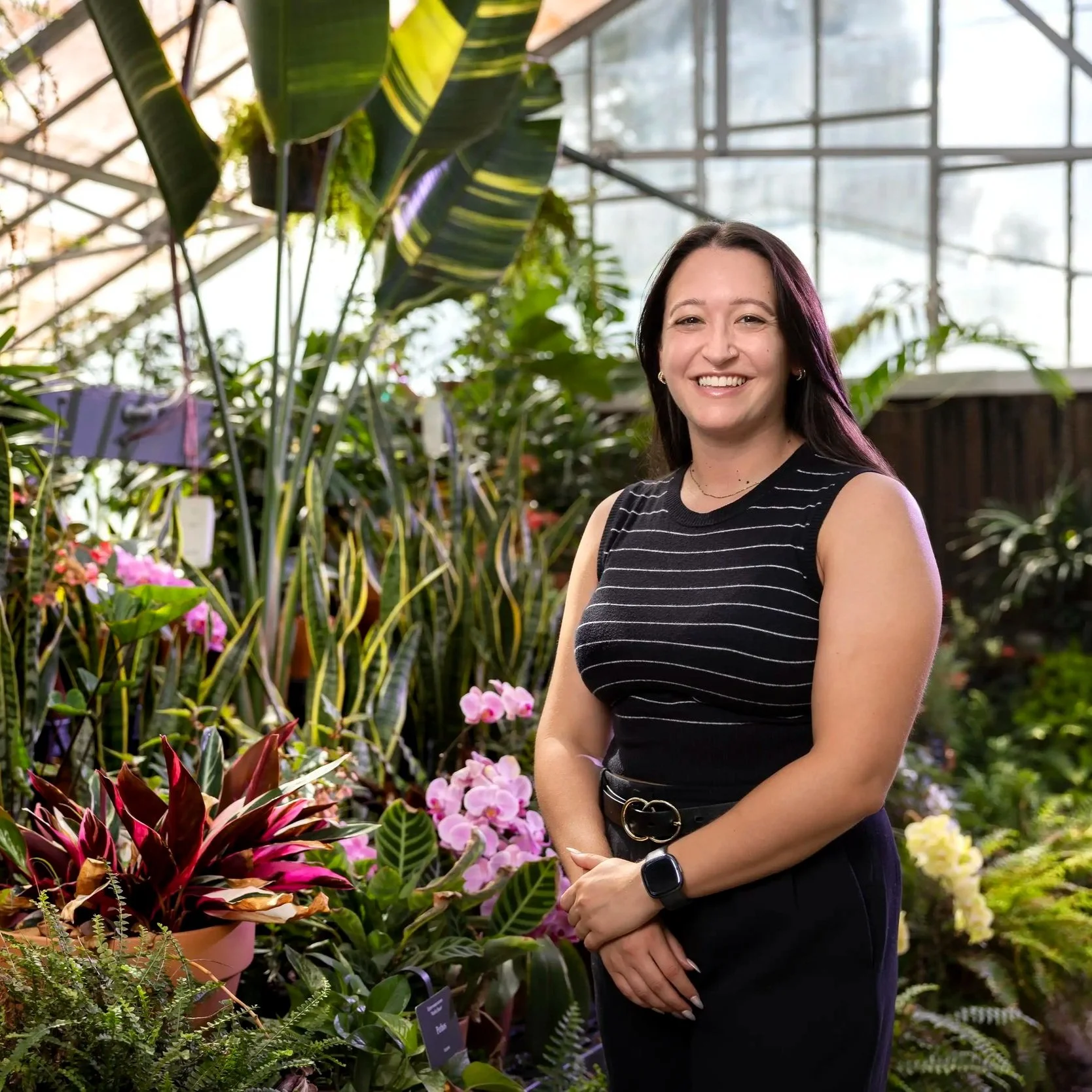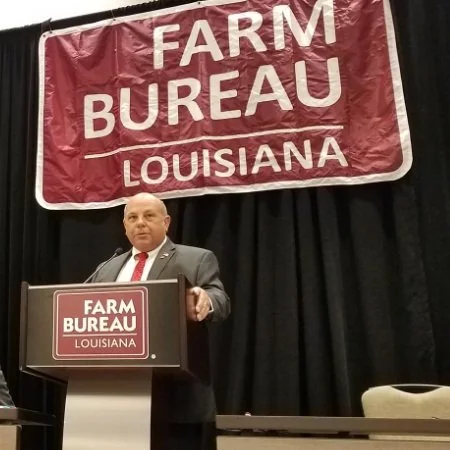For the sixth straight year, the Vermilion Parish Farm Bureau captured the President’s Award, the highest honor given by the Louisiana Farm Bureau Federation during the organization’s Annual Awards night at the 103rd Annual Convention.
The President’s Award recognizes the parish Farm Bureau excelling in membership, advocacy and communications over the past year. Louisiana Farm Bureau President Richard Fontenot presented the award to Vermilion Parish Farm Bureau President Bryan Simon Thursday night at the New Orleans Marriott.
Louisiana has among the most biodiverse ecosystems in the United States. From vast wetlands, swamps to coastal habitats, our ecosystems truly make Louisiana beautiful. One big problem our ecosystems are facing are invasive species that disrupt their balance and destroy what makes them beautiful.
Invasive species are plants, animals or other organisms that are not native to a specific area and cause harm to the environment, economy or human health when they spread.
For the third consecutive year, the Louisiana State University (LSU) Les Voyageurs club earned the top prize in the Animal Agriculture Alliance’s 2024 College Aggies Online (CAO) scholarship program. During the nine-week program, club members host 10 College Aggies events to inform students and community members about agriculture.
A new bill was introduced on Capitol Hill this week that would provide funding for farmers who experience losses as a result of the ongoing tariff negotiations.
“This bill would actually create a separate fund for the secretary of agriculture to have complete control to use, using the tariffs that are coming in,” said Rep. Julia Letlow, (R-LA), who crafted the legislation.
As rice harvesting in south Louisiana gears up for mid-July, experts are weighing in on the outlook for Acadiana farmers. Despite challenges like excessive rain and political influences, there is optimism in the air.
Peter Bachmann from the USA Rice Federation believes Louisiana's rice industry remains healthy. Ronnie Levy, a Louisiana rice specialist with the LSU AgCenter, echoed this sentiment, stating, "The rice crop looks good."
In Louisiana, sugarcane isn’t just a crop, it is part of who we are. And this summer, the people who grow it, grind it and study it will come together once again for a tradition that keeps this industry strong: field days.
Hosted by the United States Department of Agriculture, LSU AgCenter, and the American Sugar Cane League, these gatherings give growers a chance to visit research farms, hear the latest updates and talk directly with the scientists working on their behalf. It is where new ideas are shared, old ones are tested and the future of Louisiana sugarcane takes shape.
Effects from record low levels on the Mississippi River could’ve reduced the value of Arkansas’ 2022 soybean crop up to $293 million, according to research by two agricultural economists with the University of Arkansas System Division of Agriculture.
Dave Walton, secretary of the American Soybean Association and a farmer from Wilton, Iowa, testified today before the House Agriculture Committee’s Subcommittee on General Farm Commodities, Risk Management and Credit, emphasizing the importance of reauthorizing the U.S. Grain Standards Act. Under the Grain Standards Act, the federal government established official marketing standards (not health and safety standards) for grains and oilseeds, which are overseen by the Federal Grain Inspection Service (FGIS).
Farm policy is about much more than just the farm – it affects countless jobs from the field to the factory. Sugar is the main engine of economic growth in dozens of communities across the country, and much of the sugar made in America is done so by a union workforce. Supporting a strong U.S. sugar policy means supporting good, American manufacturing jobs.
Louisiana's rice crop is progressing well despite some early weather challenges. This update was shared at the 116th Annual Rice Field Day held at LSU's Rice Research Station in Crowley on Tuesday, June 24.
During the event, rice growers received insights from LSU AgCenter experts on improving rice production, including pest management strategies. The AgCenter reported that more than 461,000 acres of rice are cultivated in the state.
Like many other agricultural sectors, there has been consolidation in United States (US) farm-level sugar production. Sugar is a unique commodity because about 56 percent of the domestic production of sugar originates from sugarbeets and 44 percent originates from sugarcane. The US domestic production of sugar has increased from 8.02 million short tons raw value (STRV) in 1997 to 9.31 million STRV in 2024, an increase of 16% (USDA ERS, 2025a). However, there are now 50 percent fewer sugarbeet and sugarcane farms in the country.
With harvest season rapidly approaching, rice farmers took a break from their own fields and converged on those at the LSU AgCenter H. Rouse Caffey Rice Research Station June 24 to hear from experts about the latest industry trends and to get updates on research aimed at helping them grow a better crop.
Although farmers are facing depressed commodity prices and are keeping their fingers crossed that recent rains won’t dampen their upcoming harvests, there was still plenty of good news to go around at the field day, which has been held annually at the station near Crowley for 116 years.
Pollination is the transfer of pollen from one plant to another, often by insects, helping plants to flower and reproduce. Pollen is also a protein-rich food source for many insects, aiding in their development and growth. As pollinators land on a plant to feed, they accumulate pollen, especially on the hairs on the thorax and abdomen, the head and face, the legs (including pollen baskets in bees), and the underside of their body, which transfers to other plants when they land on them. This cycle of pollination is essential for much of the world’s food crop production.
The LSU AgCenter hosted its annual Rice Field Day this week at the H. Rouse Caffey Rice Research Station offering farmers and students an inside look at the latest innovations in rice breeding, disease management, and production techniques. Among the highlights was the unveiling of Venus, a new medium-grain variety set for commercial release next year.
With hurricane season underway, Louisiana officials held a statewide tabletop exercise Tuesday to strengthen plans for protecting animals during emergencies. The daylong event at the Opelousas Civic Center marked 20 years of organized animal disaster response efforts since Hurricanes Katrina and Rita.
Led by the Louisiana Department of Agriculture and Forestry and the Louisiana State Animal Response Team, the 2025 Louisiana State Animal Response Tabletop Exercise aimed to improve coordination among local, state and national partners involved in animal care during disasters.
Families celebrating the Fourth of July holiday continue to find high prices at the grocery store, based on the 2025 American Farm Bureau Federation annual marketbasket survey. An Independence Day cookout will cost $70.92 for 10 guests this year.
This is down only 30 cents from last year’s record-high cost. At $7.09 per person, 2025 will be the second-highest cost since Farm Bureau began the survey in 2013.
The National Cattlemen’s Beef Association (NCBA) released a series of grassroots videos featuring hardworking family farmers and ranchers who need Congress to deliver lasting tax relief by passing the “One Big Beautiful Bill.”
“Across the nation, farming and ranching families are thinking about how their cattle operation stays in business for future generations. Legislation that reduces the Death Tax, cuts taxes across the board, and helps farmers and ranchers keep more of their hard-earned money is how we keep America’s agricultural legacy going strong for future generations,” said NCBA Senior Vice President of Government Affairs Ethan Lane. “Cattle producers’ message to Congress is simple: pass the ‘One Big Beautiful Bill.’”
The National Cattlemen’s Beef Association (NCBA) and its state affiliates sent a letter to Senate Majority Leader John Thune, Senate Majority Whip John Barrasso, and Senate Finance Committee Chairman Mike Crapo urging passage of the “One Big Beautiful Bill.”
Louisiana Congresswoman Julia Letlow has filed legislation that would help agricultural producers impacted by disruptions to the global trade market. Letlow says the bill would create a dedicated fund that would allow the Trump Administration to respond swiftly to trade-related losses.
While it wasn’t called 4-H University until recently, the event just completed its 111th rendition on the LSU main campus. This year’s theme was “Leading the New Frontier.” And for some, being in Baton Rouge and staying on the campus for a week was exactly that — a new frontier.
More than 1,500 students, volunteers and 4-H agents participated in this year's event, which took place June 17 to 19.
A ridge of high pressure expanding eastward from the western U.S. delivered increasingly hot weather to parts of the Plains and Midwest, while gradually cutting off a previously wet pattern east of the Rockies. Still, before the transition occurred, weekly rainfall totaled at least 1 to 3 inches across parts of the central and eastern U.S., generally benefiting summer crops.
It’s Convention week! You know what that means. It’s going to be hot and humid with a chance of storms each day. I think I could recycle that sentence and use it for the next few months. The good news is, I don’t see a chance for tropical development in the next 10 days. In fact, The Climate Prediction Center shows below normal precipitation across the Caribbean over the first half of July. That’s one of the areas we look at for development, and I think we are all just fine with it looking quiet over the next few weeks.
Several Southern apple varieties have origins in Louisiana. Apples such as Bossier Greening, Felt’s Strawberry, Louisiana, McMullen, Pride of the South, Terral and Woodland are all extinct, according to C. Lee Calhoun in his magnificent book, “Old Southern Apples.” If even one stands a chance of being rediscovered, it is the McMullen apple. It left a blazed trail for us to follow.
Back in April, KALB introduced you to three young cowgirls from DeRidder who are redefining the face of rodeo in Louisiana. Now, those same girls are taking their talents with breakaway roping to the national stage.
Before they saddled up and hit the highway, we caught up with two of them, Macie McBride and Ava Williams, who have been competing in the DeRidder rodeo scene since they were five years old. Their bond was built racing one barrel at a time, and now, their childhood dream is galloping into reality.
Listen to the latest markets and headlines in Louisiana Agriculture on The Voice of Louisiana Agriculture Radio Network.
















































